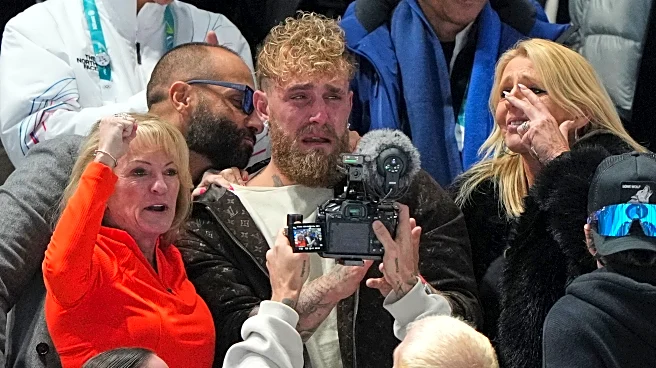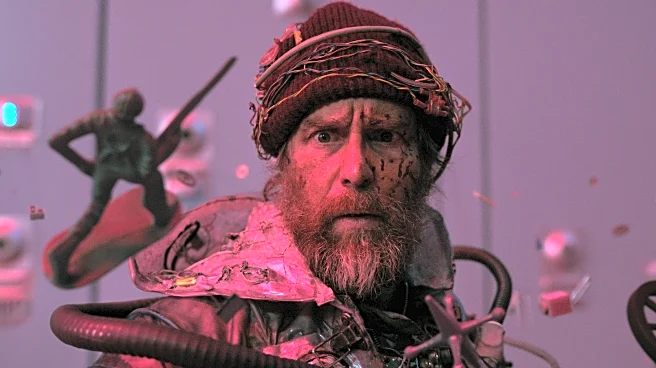What's Happening?
HBO Max is set to release 'The Seduction,' a new French-language drama inspired by 'Dangerous Liaisons,' focusing on the female gaze. Directed by Jessica Palud, the series is a reinterpretation of the 1782 novel by Choderlos de Laclos, offering a fresh
perspective on the story of Marquise Isabelle de Merteuil. The show elevates minor characters, such as Rosemonde, played by Diane Kruger, into significant roles, forming alliances with young Isabelle, portrayed by Anamaria Vartolomei. The series aims to explore themes of female empowerment in a male-dominated society, drawing parallels to the #MeToo movement.
Why It's Important?
The reimagining of 'Dangerous Liaisons' through a female lens highlights the ongoing cultural shift towards gender equality and the empowerment of women in storytelling. By focusing on female characters and their struggles in a patriarchal society, the series resonates with contemporary movements advocating for women's rights and representation. This adaptation could influence future productions to explore historical narratives from diverse perspectives, potentially impacting the entertainment industry by encouraging more inclusive storytelling.
What's Next?
The release of 'The Seduction' may spark discussions on gender dynamics in historical narratives and inspire similar adaptations. As audiences engage with the series, there could be increased demand for content that challenges traditional gender roles and highlights women's experiences. The show's success might lead to further exploration of female-centric stories in television and film, encouraging producers and directors to prioritize diverse voices in their projects.
Beyond the Headlines
The adaptation of 'Dangerous Liaisons' with a focus on female empowerment raises questions about the ethical portrayal of historical figures and events. It challenges the traditional narrative by offering a nuanced view of women's roles in history, potentially influencing cultural perceptions and academic discourse. This shift in storytelling could lead to broader discussions on the representation of marginalized groups in media and the importance of revisiting historical narratives with a critical eye.

















